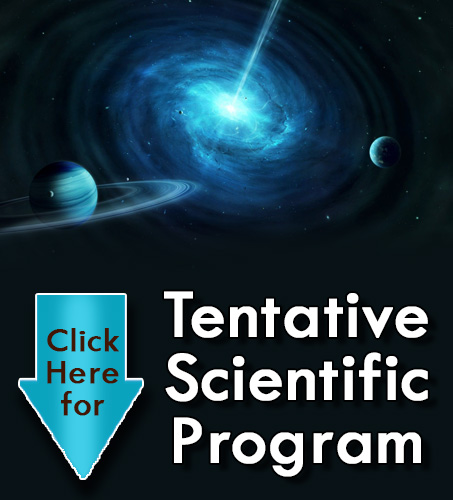Jehonathan Bentwich
Brain Perfection LTD, Israel
Title: Does the computational unified field theory (CUFT) challenge the “Big-Bang theory�
Biography
Biography: Jehonathan Bentwich
Abstract
A recently discovered ‘Computational Unified Field Theory’ (CUFT) has been validated as a satisfactory ‘Theory of Everything’ (TOE) capable of resolving the key theoretical inconsistencies that exist between Quantum Mechanics (QM) and Relativity Theory (RT). Additionally, this CUFT signifies a ‘Paradigmatic Shift’ from the current ‘Material-Causal’ Paradigm underlying both QM and RT towards the CUFT’s ‘A-Causal Computation’ Paradigm which posits that all of the spatial pixels in the physical universe are computed simultaneously by a singular (higher-ordered) Universal Computational Principle (UCP) hence negating the possibility of the existence of any ‘material-causal’ relationship/s or effects between any two (or more) quantum or relativistic elements or phenomena; Interestingly, this new CUFT ‘A-Causal Computation’ Paradigm is shown to resolve one of the key unresolved Physical conundrums of “dark-matter” and “dark-energy” (accounting for up to 90% of all mass and energy in the physical universe) as well as challenges the basic “Big-Bang Theory’ standing as the basis for Relativity’s description of the origin of our universe. This is due to the CUFT’s ‘A-Causal Computation’ reliance upon the ‘Universal Computational Principle’s simultaneous computation of any spatial pixel in the physical universe at any minimal time-point (c2/h) comprising any single or multiple ‘Universal Simultaneous Computational Frame’ (USCF’s) which precludes the possibility of any ‘material-causal’ relationship between any two or more (quantum or relativistic) physical elements existing either within- or across- any two subsequent USCF’s frames, e.g., including between the “big-bang” explosion that is assumed to take place within the universe’s “first” USCF frame and any other subsequent hypothetical USCF frame. Potentially far reaching theoretical ramifications of the CUFT’s ‘A-Causal Computation’ (new) Paradigm are discussed.

